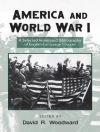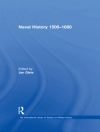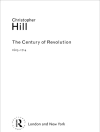Across American history, the question of whose lives are long and healthy and whose lives are short and sick has always been shaped by the social and economic order. From the dispossession of Indigenous people and the horrors of slavery to infectious diseases spreading in overcrowded tenements and the vast environmental contamination caused by industrialization, and through climate change and pandemics in the twenty-first century, those in power have left others behind.
Through the lens of death and disease, Building the Worlds That Kill Us provides a new way of understanding the history of the United States from the colonial era to the present. David Rosner and Gerald Markowitz demonstrate that the changing rates and kinds of illnesses reflect social, political, and economic structures and inequalities of race, class, and gender. These deep inequities determine the disparate health experiences of rich and poor, Black and white, men and women, immigrant and native-born, boss and worker, Indigenous and settler. This book underscores that powerful people and institutions have always seen some lives as more valuable than others, and it emphasizes how those who have been most affected by the disparities in rates of disease and death have challenged and changed these systems. Ultimately, this history shows that unequal outcomes are a choice—and we can instead collectively make decisions that foster life and health.
Inhaltsverzeichnis
Preface and Acknowledgments
Introduction: “Sick and Tired of Being Sick and Tired”
1. Disease and Exploitation During the Colonial and Revolutionary Eras
2. Life and Death in Antebellum America
3. “The Surging Tide of Business . . . Yielding Up the Bones of the Dead”: Overwork, Poor Nutrition, Unhygienic Homes, and a Hazardous Workplace
4. Resetting the Ground Rules for Inequality: Labor, Law, and Health After the Civil War
5. Gasping for Breath: Creating New Diseases and Inequalities
6. Better Living Through Chemistry?
7. Darkest Before the Dawn?
Notes
Index
Über den Autor
Gerald Markowitz is distinguished professor of history at John Jay College. He is the coauthor with David Rosner of Deadly Dust: Silicosis and the Politics of Occupational Disease in Twentieth Century America, (Princeton University Press, 1991) and coeditor of The Contested Boundaries of Public Health (Rutgers, 2008).












